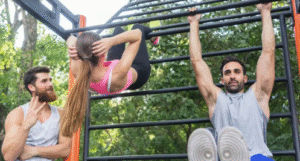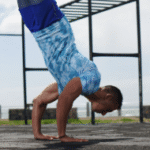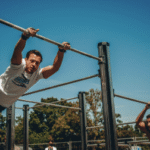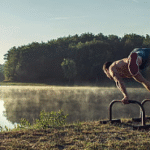Finding Your Fit: How to Choose the Right Personal Calisthenics Trainer
Okay, you’ve done your research, maybe even had consultations with a few potential coaches after searching for “Private Calisthenics Sessions Near Me.” Now comes the crucial part: choosing the *right* personal calisthenics trainer for you. This decision goes beyond just finding someone qualified; it’s about finding the right *fit* – a partnership that aligns with your goals, personality, and learning style to maximize your success and enjoyment.
Here’s a detailed guide on how to choose the right personal calisthenics trainer in the USA, focusing on finding that perfect fit as of Monday, April 28, 2025:
**1. Review the Hard Facts: Expertise, Relevance, and Logistics**
Before considering personality, ensure the fundamentals are solid:
* **Verify Relevant Qualifications & Specialization:** Don’t just look for *any* certification. Confirm they have demonstrable expertise *in calisthenics* and specifically in the areas *you* want to improve (e.g., handstands, strength building, mobility for bodyweight movements). Revisit their credentials, experience, and any specialized training they highlighted. Does their expertise directly address your primary goals?
* **Assess Proven Results:** Look back at the testimonials, reviews, or case studies they provided (or that you found online). Do they have a track record of helping people *like you* achieve goals *similar to yours*? Vague success stories are less compelling than specific examples.
* **Confirm Practicalities:** Double-check the logistics.
* **Location:** Is the training location convenient and sustainable for you long-term? Factor in travel time realistically.
* **Scheduling:** Does their available schedule genuinely fit yours without causing undue stress?
* **Budget:** Can you comfortably afford their rates (including potential package commitments) for the duration you anticipate needing coaching?
* *Decision Point:* Eliminate any options that fail these practical or expertise checks, regardless of how much you liked them.
**2. Evaluate the Coaching Approach: Style and Philosophy**
This is where “fit” starts becoming more personal:
* **Match Your Learning Style:** Reflect on your consultation(s). How did they explain concepts or demonstrate exercises? Did their communication style resonate with you? Some coaches are highly technical, others more visual, some focus on feeling the movement. Which approach helps *you* learn best?
* **Align on Training Philosophy:** Do you agree with their overall approach? Consider:
* Emphasis on perfect form vs. pushing intensity.
* Prioritization of skill work vs. foundational strength.
* Approach to progression (e.g., slow and steady vs. faster challenges).
* Views on rest, recovery, and listening to your body.
* *Decision Point:* A fundamental mismatch in training philosophy can lead to frustration or lack of buy-in down the line.
* **Consider Their Motivation Method:** How do they motivate clients? Are you looking for a cheerleader, a demanding drill sergeant, a data-driven analyst, or a calm, supportive guide? Be honest about what works best for *you* and see if their style aligns.
**3. Gauge the Personal Connection: Rapport and Communication**
This subjective element is critical for a successful long-term coaching relationship:
* **Assess Communication:** Were they clear, articulate, and easy to understand during your interaction? Did they actively listen to your goals and concerns, or did they seem to push their own agenda? Were they responsive and professional in initial communications?
* **Evaluate Rapport:** Did you feel comfortable talking to them? Could you envision yourself asking “silly” questions without feeling intimidated? Do you feel they respect you and are genuinely interested in helping you succeed? Trust and comfort are key.
* **Sense of Partnership:** Does it feel like they view this as a collaboration, or more like a top-down instruction? The best coaching relationships often feel like a partnership working towards a common goal.
**4. Consider Professionalism and Trust**
Ensure they operate professionally:
* **Clear Policies:** Were their payment terms, cancellation policies, and scheduling procedures explained clearly and seem fair?
* **Insurance:** Did they confirm they have liability insurance? (This is non-negotiable for your safety).
* **Trustworthiness:** Do they seem honest, ethical, and reliable? Did they avoid over-promising unrealistic results?
**5. Listen to Your Intuition: The Gut Check**
After evaluating all the objective and subjective factors:
* **Synthesize:** Weigh everything together. Sometimes the most qualified coach on paper isn’t the best personal fit, and vice-versa (though baseline qualifications are essential).
* **The “Feeling”:** Often, you’ll have an intuitive sense about which coach you connected with most or who seems best equipped to help *you*. Don’t discount this gut feeling – enjoying your sessions and trusting your coach significantly impacts adherence and results.
**Making the Final Decision:**
* **Trial Session:** If you’re still undecided between two strong candidates, ask if they offer a paid single trial session before committing to a package. This can be invaluable for experiencing their coaching style firsthand.
* **Commit:** Once you’ve made your choice based on this thorough evaluation, commit to the process. Trust the coach you’ve chosen and communicate openly throughout your training journey.
**Conclusion:**
Choosing the right personal calisthenics trainer is about finding someone who possesses the necessary expertise *and* aligns with your individual needs, personality, and learning style. It’s a blend of verifying credentials, assessing compatibility, checking logistics, and trusting your intuition. Taking the time to “find your fit” is crucial because the right coach won’t just guide your workouts; they’ll inspire confidence, ensure safety, maximize your efficiency, and ultimately make your journey towards achieving your calisthenics goals far more effective and enjoyable.

Finding Your Fit: How to Choose the Right Personal Calisthenics Trainer
Route
Calisthenics Gym Houston Functional Bodyweight Training
Secondary phone: (346) 483-3195
Email: info@calisthenicsclubhouston.com
URL: https://calisthenicsclubhouston.com/
Monday 6:00 AM - 7:00 PM Tuesday 6:00 AM - 7:00 PM Wednesday 6:00 AM - 7:00 PM Thursday 6:00 AM - 7:00 PM Friday 12:00 PM - 6:30 PM Saturday 9:45 AM - 12:00 PM Sunday 3:00 PM - 5:00 PM





